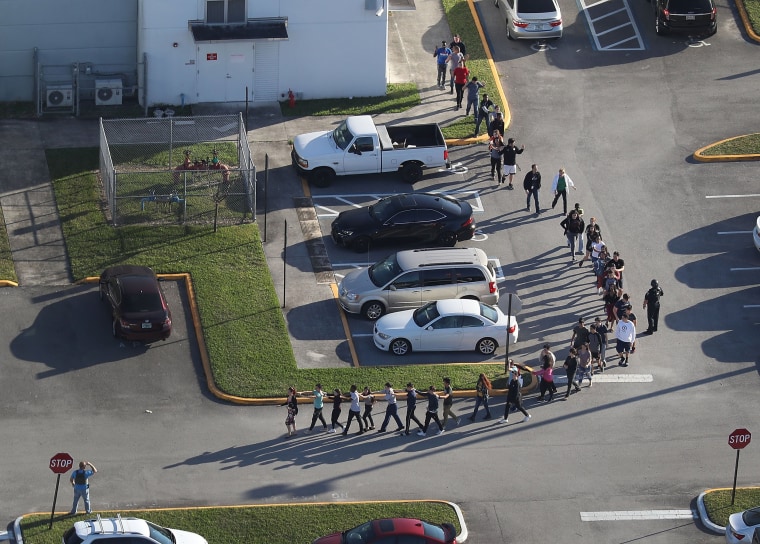Coverage of gun violence in 2018 and President Donald Trump's personal and business life won multiple Pulitzer Prizes on Monday.
The public service award, considered the most prestigious of the 14 Pulitzers given for journalism, went to The South Florida Sun Sentinel for its coverage of the circumstances of and fallout from the shooting at Marjory Stoneman Douglas High School.
The staff of The Pittsburgh Post-Gazette won the award for breaking news reporting for "immersive, compassionate coverage of the massacre at Pittsburgh’s Tree of Life synagogue that captured the anguish and resilience of a community thrust into grief," the Pulitzer board, based at Columbia University in New York, wrote on its website.
The Pulitzer Board also issued a special citation to The Capital Gazette of Annapolis, Maryland, for its coverage of the shooting that took the lives of five of the newspaper's journalists, and awarded the paper $100,000 "to further the newspaper's journalistic mission."
At the Pulitzer announcement, the prize administrator, Dana Canedy, also recognized the work of The Eagle Eye, the student newspaper of Stoneman Douglas High School, for the publication of obituaries of their classmates.
"We took their submission very seriously. If you do something you're proud of at your school, submit it," Canedy said.
Two major stories involving the president were recognized by the Pulitzer committee. David Barstow, Susanne Craig and Russ Buettner of The New York Times were awarded the prize for explanatory reporting for their investigation into Trump's history of tax-avoidance schemes, showing that much of his financial foundation was inherited from his father.
The staff of The Wall Street Journal won for national reporting for its coverage of hush-money payments to two women who alleged they had sexual relationships with Trump.
"This was classic Wall Street Journal 'follow the money' reporting — straight, accurate, factual and irrefutable," Matt Murray, editor-in-chief of the Journal, said. "It is also a model of collaboration among a wide range of journalists and editors."
No awards were given for coverage of special counsel Robert Mueller's Russia investigation, though reporting on the subject won two awards the previous year.
Matt Hamilton, Harriet Ryan and Paul Pringle of The Los Angeles Times won for investigative reporting for their work uncovering sexual harassment allegations made against a doctor who worked at the University of Southern California.
"The award recognizes an extraordinary piece of journalism that continues the Los Angeles Times' commitment to public service journalism and stories that have real impact on the lives of our readers," Norman Pearlstine, executive editor of the Los Angeles Times, said. "Through all of the turmoil of the last few years, the one constant has been the newsroom's commitment to public service journalism."
Reuters won for breaking news photography and international reporting, the latter of which was also shared with The Associated Press.
Hannah Dreier of ProPublica won for features writing for her series on Salvadoran immigrants on Long Island, New York, who were caught between violent gangs and federal authorities.
The Advocate of Baton Rouge, Louisiana, won for local reporting, with the board noting that the paper had revealed that Louisiana courts sent "defendants to jail without jury consensus on the accused’s guilt."
